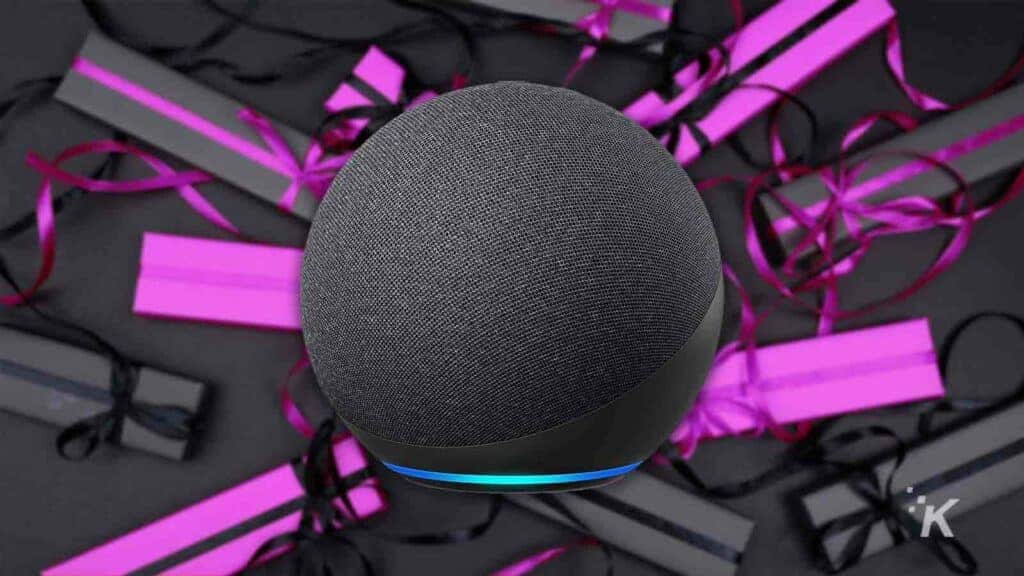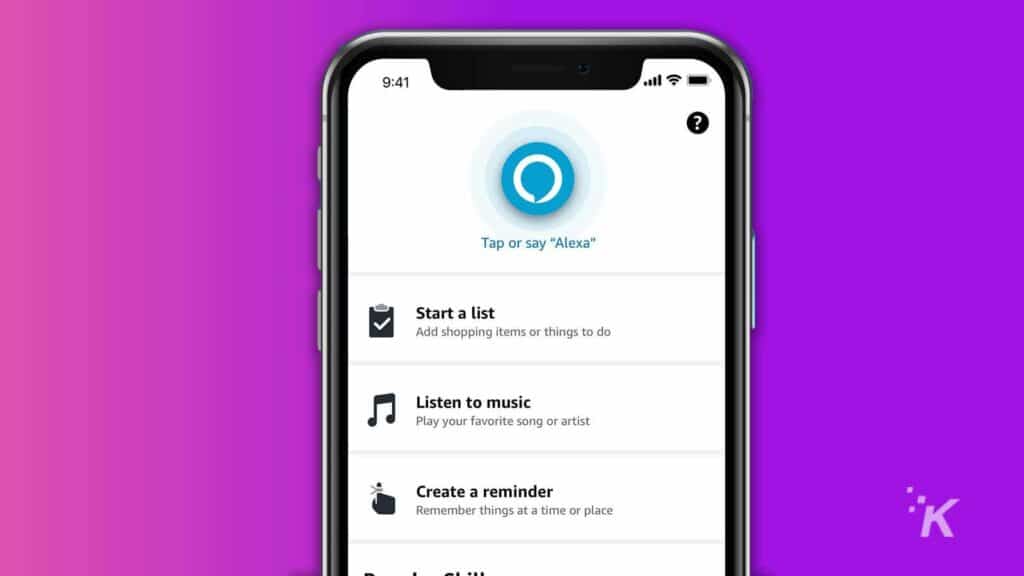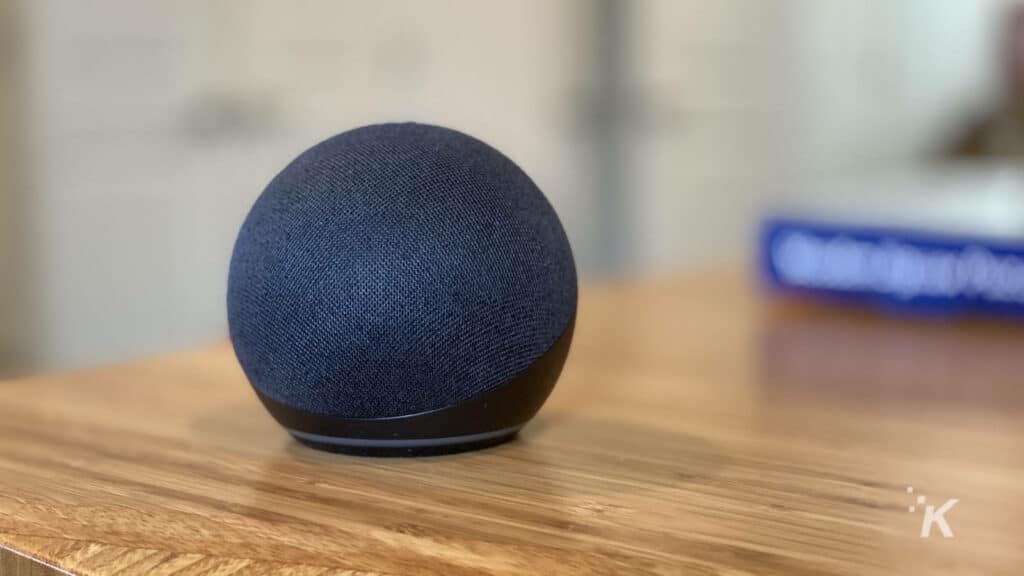Ads
Amazon uses Alexa to target ads, lawsuit claims
People associated with the lawsuit say they have had targeted ads served to them without consent and Alexa data allowed it to happen.

Just a heads up, if you buy something through our links, we may get a small share of the sale. It’s one of the ways we keep the lights on here. Click here for more.
If you’re like many people, you may think of your Amazon Alexa-enabled smart speaker as one of the handiest devices in your house.
It lets you choose a soundtrack for making dinner, reorder a staple product from Amazon, set a timer, or find out information, all without doing anything but uttering the correct commands.
But, there’s a darker side to how Alexa works. A recent lawsuit alleges that the company uses data from its smart speakers to serve relevant ads to consumers.
Data allegedly collected without consent

When visiting a website, you can’t get far without seeing pop-up content that asks you to consent to cookies.
It explains how the site owners use data-collection practices and in some cases, lets you make some changes before accepting. However, there’s no way yet to do that on a smart speaker.
People associated with the lawsuit say they have had targeted ads served to them without consent and that Alexa data was what allowed it to happen.
The invasion of privacy and infringement of personal rights are two of the numerous things the plaintiffs take issue with in the suit.
Researchers arrived at a similar conclusion

A May 2022 research paper also confirmed the suit’s allegations about unauthorized data collection through Alexa.
The investigation involved 10 people from three universities using nine simulated personas of potential Alexa users.
The researchers made one for someone interested in health and fitness, another for religion and spirituality, and so on. They also built four control personas that did not interact with Alexa skills tied to certain interests.
The results indicated that Amazon uses Alexa voice data to infer the ads that might interest a person. However, the researchers could not conclude whether the same practice occurred when individuals used certain Alexa skills.
They found that most developers who create Alexa skills don’t write their privacy policies correctly, so it’s often unclear whether or how the skill collects data.
The researchers said some Alexa personas led to up to 30x higher bids from advertisers. Moreover, Amazon shares user data with as many as 41 ad partners.
What are the potential implications?
Perhaps you’ve had some online advertising experiences that were genuinely helpful.
Maybe you’d recently searched for a product, then saw an ad afterward that assisted your buying process, enabling you to find and purchase an item you now love.
Amazon’s practice of collecting voice data might lead to some similar experiences. Maybe it’ll make you aware of a new music track or audiobook you’d enjoy.
However, it might also mean Amazon learns things about you or someone in your home you’d rather not share.

For example, an estimated 10% of Americans have alcohol use disorder, while 2-3% of adults in the United States meet the criteria for problematic gambling.
Other addictions, such as food, shopping, sex, or smoking, are more common than many people may realize. What if Amazon uses those issues against the people experiencing them to target ads and products?
Even considering the fact that not all targeted ads are necessarily bad, many users may still consider Amazon’s smart speaker usage a breach of privacy.
By 2025, a projected 130 million Echo speakers are set to be shipped globally — out of these millions of users who are voluntarily bringing Alexa into their home, most probably don’t realize they’re unwittingly ad targeted through their device.
Amazon has changed its ad-targeting stance

Back in 2019, when questioned about whether Amazon used its smart speakers for advertising, a company representative said it did not.
However, things have changed because the researchers in the study mentioned above reached out to Amazon to get some clarifications. In that instance, an Amazon representative stated:
“Similar to what you’d experience if you made a purchase on Amazon.com or requested a song through Amazon Music, if you ask Alexa to order paper towels or to play a song on Amazon Music, the record of that purchase or song play may inform relevant ads shown on Amazon or other sites where Amazon places ads. Customers can opt-out of interest-based ads from Amazon at any time on our website.”
The company also confirmed that this targeted advertising could occur during smart speaker usage. The representative continued:
“Customers may receive interest-based ads when they use ad-supported premium content — like music, radio or news streams.”
How to turn off Amazon’s ad-targeting
NOTE: You’ll still get advertisements, but not ones personalized to you.
Awareness helps you use the internet and connected speakers carefully
Amazon is certainly not the only company engaging in ad targeting.
However, what people took issue with most regarding this recent case is that it happened without consent.
Think of this as a valuable reminder to always read privacy policies carefully and to be careful when you use the internet and Wi-Fi-enabled gadgets.
Even if you don’t realize it, companies may use your interactions to shape the ads you receive.
Have any thoughts on this? Let us know down below in the comments or carry the discussion over to our Twitter or Facebook.
Editors’ Recommendations:
- Great, Amazon is going to add video ads to its shopping app
- Amazon searches are littered with sponsored results
- Amazon Prime benefits – here’s everything you get with Prime
- Amazon is buying iRobot – this is probably why





























